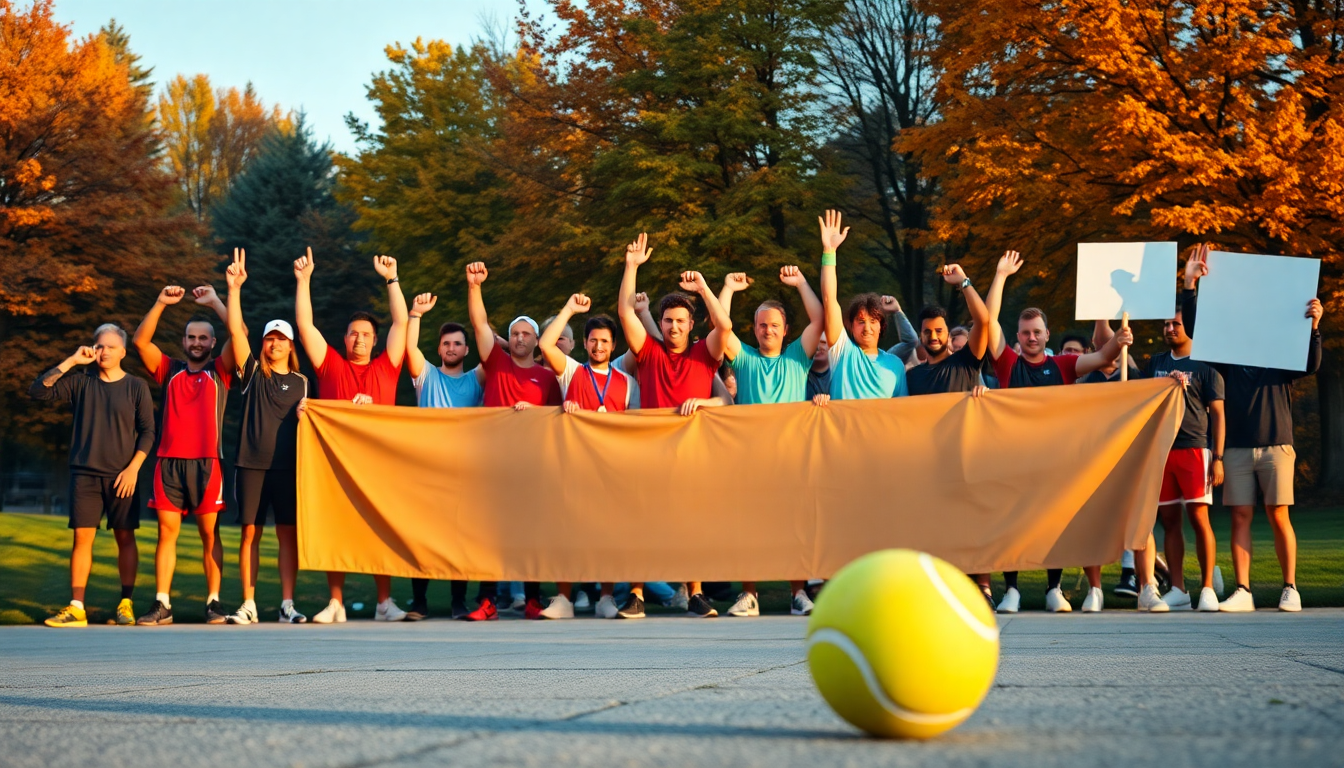Table of Contents
In a powerful statement that resonates with growing concerns over human rights, four-time Olympian Moh Ahmed has joined forces with 413 other Canadians to urge Tennis Canada to cancel the upcoming Davis Cup tie scheduled for September in Halifax against Israel.
This bold collective action comes amid rising global criticism regarding Israel’s treatment of Palestinians in Gaza and the West Bank, with numerous legal experts and human rights advocates labeling the situation as *genocide*. The letter from Ahmed and his fellow athletes isn’t just a plea for justice; it’s a clarion call for Canada to rethink its sporting ties with nations involved in human rights violations.
Contextual Background and Signatories
Moh Ahmed, who hails from St. Catharines, Ontario, shot to fame after winning a silver medal at the Tokyo Olympics. His dedication to social justice extends well beyond athletics. He stands in solidarity with a diverse array of notable figures, including three UN Special Rapporteurs, two Palestinian women’s national soccer players studying at York University, and Hernan Humana, a former Olympic beach volleyball coach who is now a professor.
Together, these signatories argue that allowing the Davis Cup match to go ahead would contradict Canada’s own expressed commitment to human rights, especially in light of recent sanctions placed by the Canadian government on senior Israeli officials.
The letter also points to instances where athletes from other countries have refused to compete against Israeli opponents, calling on national sports organizations to impose similar restrictions on Canadian athletes.
Their argument is rooted in the history of sports being used as a platform for national sentiment, particularly when it comes to issues as serious as genocide and apartheid. These athletes believe this moment represents a unique opportunity for Tennis Canada and Sport Canada to reaffirm their commitment to social justice and ethical engagement.
Tennis Canada’s Response and Competition Details
Despite the mounting pressure from athletes and advocates, Tennis Canada has confirmed that the Davis Cup tie will proceed as planned in Halifax. The organization has stated that it will follow the competition structure as mandated by the International Tennis Federation.
A spokesperson acknowledged the complex situation in the Middle East, asserting that Tennis Canada’s primary focus is on promoting the sport, creating opportunities for players and fans, and ensuring that the event runs safely and professionally.
The upcoming tie at the Scotiabank Centre is crucial, as it will determine which country advances to the 2026 Davis Cup Qualifiers. After a disappointing loss to Hungary earlier this year, Canada finds itself in a tough spot, having been relegated to World Group I. The last time Canada faced Israel was in 2011, where Canada emerged victorious, but the current climate presents a starkly different backdrop.
Implications for the Sports Community
This unfolding situation raises important questions about the intersection of sports, politics, and ethics. As athletes increasingly use their platforms to advocate for social justice, the potential impact of these movements could reshape the landscape of international sports. The discussion surrounding the Davis Cup tie highlights the responsibility of sports organizations to navigate these complex issues with sensitivity and awareness.
As the date for the tie approaches, the tension between the call for social justice and the continuation of sporting events becomes more palpable. The outcome of this debate may set a significant precedent for future international competitions, as the global sports community grapples with its role in addressing human rights violations and promoting ethical practices. This scenario not only reflects the current socio-political climate but also encourages athletes and stakeholders to reconsider the implications of their participation in events that might unintentionally endorse or overlook systemic injustices.





